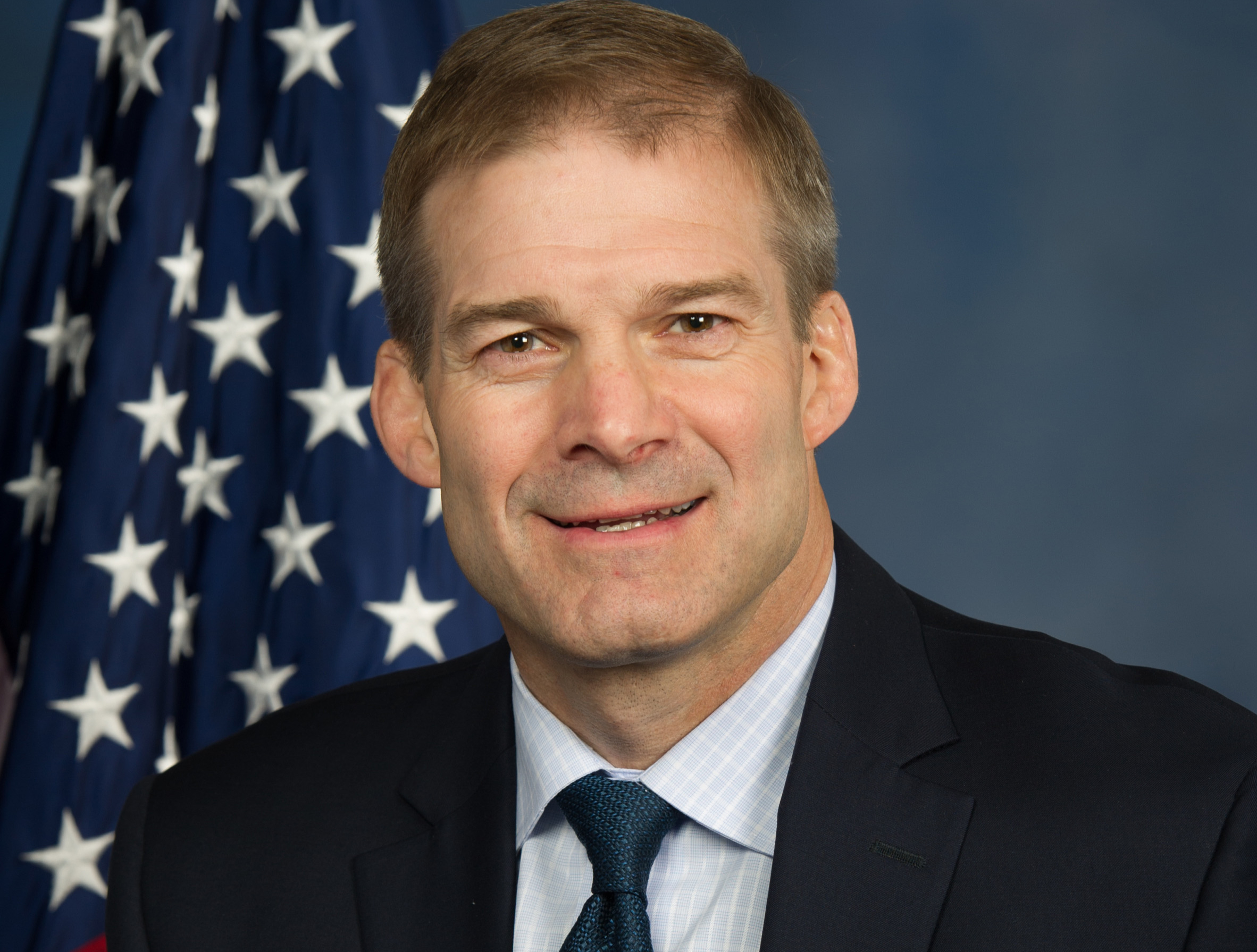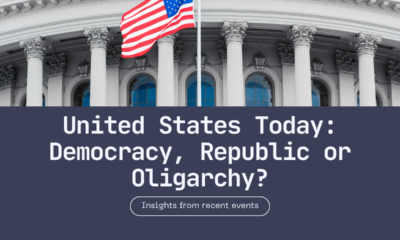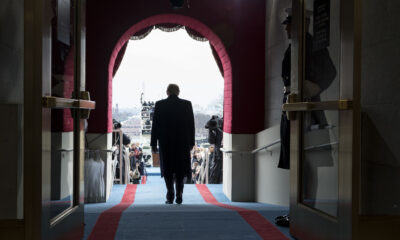Executive
This Week in Censorship | February 5-11
Censorship news covers two major lawsuits (Berenson v. Biden and Murthy v. Missouri), and White House non-compliance with subpoenas.

This week’s curation at the RealClear Censorship page began with independent journalist Alex Berenson’s report on the latest development in his federal censorship lawsuit against the Biden Administration. Berenson v. Biden was filed in the Southern District of New York in March of last year and alleges the defendants—President Biden, former advisor Andy Slavitt, White House Director of Digital Strategy Robert Flaherty, Surgeon General Vivek Murthy, and two executives at Pfizer—coordinated with social media companies, primarily Twitter, to censor Berenson’s critical reporting on the novel Covid mRNA vaccinations. Berenson, a former New York Times reporter, was banned from Twitter in August 2021 and successfully sued the company to have his account reinstated; the current suit cites public statements, as well as documents exposed in the Twitter Files and a similar lawsuit, Murthy v. Missouri (formerly Missouri v. Biden) as evidence that the federal government played a role in the ban and therefore directly violated the journalist’s First Amendment rights.
Berenson reports that Andy Slavitt, on instruction from the White House, has refused to comply with a congressional subpoena related to his involvement in the social media censorship campaign. In a letter to Slavitt’s legal team, a White House lawyer instructed Slavitt to defy the subpoena and assured him that “he cannot be prosecuted for contempt of Congress,” nor even be subject to a civil action, if he failed to appear for the deposition. It is a federal crime to defy a congressional subpoena. Peter Navarro and Steve Bannon were both convicted of contempt of Congress for refusing to testify on their involvement in the events of January 6, 2021—Navarro was even sentenced to four months in prison. Nevertheless, the White House cited “the constitutional defects” of the subpoena in their guarantee of Slavitt’s immunity, a maneuver that will deprive Berenson’s suit of meaningful testimony from a defendant central to the complaint.
Lee Fang, contributor at RealClear Investigations and author of numerous stories about the cooperation between the public and private sectors in censoring online speech, testified Tuesday before the Select Subcommittee on the Weaponization of the Federal Government. The committee is chaired by Jim Jordan and was convened a year ago to investigate a broad range of alleged abuses of federal authority, including online censorship. Fang offered testimony on much of his recent reporting, including the revelation of Moderna’s internal censorship methodologies as well as the dealings of British tech startup Logically.AI, which contracts with US state and federal government agencies to “combat” mis- and disinformation with artificial intelligence. Greg Lukianoff, president of the Foundation for Individual Rights and Expression (FIRE), testified alongside Fang and spoke about the “chilling threat posted to free speech by AI.”
In addition to his appearance in front of the Weaponization subcommittee, Fang published another joint piece with RealClear Investigations this week about the Department of Homeland Security’s attempt to censor New York Times journalist Reid J. Epstein. In November of 2020, Epstein tweeted an innocuous, matter-of-fact and evidently accurate statement about Green Bay’s presidential election absentee ballot results being delayed due to a lack of printer ink. What followed was a textbook demonstration of the censorship mechanisms in place between the federal government and social media companies. In a span of four hours, the offending Tweet was passed on from the Center for Internet Security (CIS) to the Cybersecurity and Infrastructure Agency (CISA), a sub-agency of the Department of Homeland Security, who then forwarded it to a senior Twitter legal executive with a request for content moderation. By 9:27 that morning, Twitter wrote back to Brian Scully at the DHS saying that the Tweet had been successfully “labelled,” or shadow banned—all with scant attention paid to the actual accuracy of the statement, which is at this point essentially undeniable.
Fang’s thorough reporting on the frenzied internal communications leading to this content moderation action perfectly exemplifies the complex, bureaucratic network of agencies devoted to the targeting of so-called “misinformation.” Without much care at all for the veracity of Epstein’s statement, it was elevated to the “national alert” category at CISA and then swiftly censored by Twitter at the agency’s behest. Because the Tweet had a mere whiff of skepticism about the sound functioning of an electoral precinct it was unilaterally deemed false and sanctioned. Remarkably, neither Epstein nor the New York Times appear to have spoken out against this mostly successful attempt by a federal government agency to censor a journalist online.
The Intercept has been producing some of the strongest reporting on the developments in censorship, online and elsewhere, that have emerged in the wake of Hamas’ invasion of Israel on October 7 and the ensuing war in Gaza. This week, Connor Echols reported on a satirical student newspaper at Northwestern University that faced criminal charges for publishing a mock A-1 page with the headline “Northwestern complicit in the genocide of Palestinians.” The parody paper was distributed widely on campus and included fabricated quotes from school officials. Two students behind the Northwestern Daily—a spoof on the Daily Northwestern, the university’s actual independent student paper—were being prosecuted for “theft of advertising services,” an obscure statute originally passed in Illinois and California to prohibit the Ku Klux Klan from recruiting in newspapers. The charges were brought after Students Publishing Company, which owns the Daily Northwestern, “engaged law enforcement to investigate and find those responsible.” After days of intense backlash, the SPC backed off and prosecutors announced that the misdemeanor charges would be dropped.
The move to immediately involve law enforcement was seen by other students as an aggressive escalation and a politically motivated affront to free expression on a campus that has been particularly embattled over the ongoing war in Gaza. University President Michael Schill drew sharp condemnation from faculty and students after saying the school would not take a position in the conflict. Despite this, groups on both sides of the issue have claimed bias of one form or another on the University’s part: Alums for Campus Fairness ran an ad campaign attacking Schill for failing to protect the school’s Jewish students, while a faculty group published an open letter in the Daily Northwestern faulting him for “[condemning] Hamas’ attacks while ignoring the broader context.”
The war in Gaza has provoked a variety of free speech concerns from all sides in the last four months. Following the Twitter Files and a litany of other disclosures in recent years, more attention is rightly paid to the power mid-level tech employees have over the content moderation decisions doled out on their platforms. The Intercept has previously reported on a contingent of employees at Meta who advocate, often overzealously, for the restriction and removal of content they deem to be excessively pro-Palestine. This week, Sam Biddle reported that the company is entertaining the idea of policing more strictly the use of the word “Zionist.”
Other stories we curated this week include the New Civil Liberties Alliance’s request that the Supreme Court uphold an injunction against social media censorship first imposed by the Fifth Circuit Court of Appeals in the ongoing Murthy v. Missouri case. The NCLA is spearheading a broad legal movement to combat the rise of government censorship online. The group is currently suing the State Department for its funding of private misinformation censorship companies previously reported on in this newsletter. Across numerous suits, a diversity of plaintiffs is attempting to hold the federal government accountable to a strikingly simple principle: compelling private companies to censor speech is a clear violation of the First Amendment. In the words of John Vecchione, a senior lawyer at the NCLA: “Police officers can’t tell booksellers what to put on their shelves and the government can’t tell social media what to delete.”
This article was originally published by RealClearPublicAffairs and made available via RealClearWire.
Charlie Tidmarsh writes for Real Clear Public Affairs
-

 Executive4 days ago
Executive4 days agoSecret Service chief gets no solace
-

 Executive3 days ago
Executive3 days agoWaste of the Day: Louisville Taxpayers Pay Nearly $600,000 For Empty Building’s Maintenance, Security
-

 Guest Columns4 days ago
Guest Columns4 days agoFear Itself: Democrats’ Favorite Strategy Caused Their Current Chaos
-

 Executive3 days ago
Executive3 days agoWhere is Joe Biden – or Jill?
-

 Executive1 day ago
Executive1 day agoWaste of the Day: Throwback Thursday: Cities Used Crime Prevention Funds on Soccer Games, Paper Shredding
-

 Executive2 days ago
Executive2 days agoFacile and politically motivated suggestions
-

 Civilization4 days ago
Civilization4 days agoBuild Iron Dome in the United States To Prepare for Israel’s Worst Day
-

 Executive4 days ago
Executive4 days agoThe Emerging GOP Plan To Beat Kamala Harris












